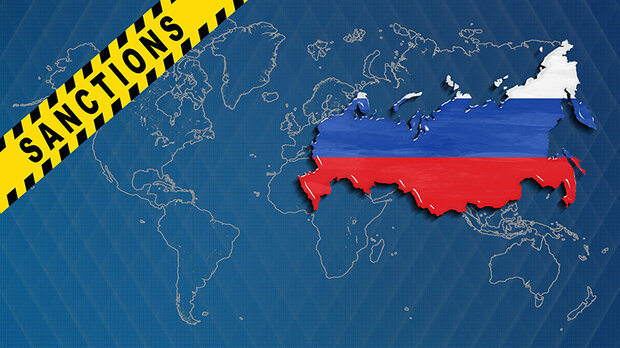Hasan Beheshtipour referred in an interview with the Strategic Council on Foreign Relations, to statements by European officials that this union has frozen 17 billion euros of assets of Russian citizens and 300 billion euros of reserves of the Russian Central Bank and is trying to use it for the reconstruction of Ukraine.
“This is definitely an act of international banditry and piracy. Unfortunately, the monetary and banking system of the world has these basic problems that lead countries to keep their basic reserves mainly in US and European banks, especially in the UK”, said Beheshtipour.
He reminded that more than 80 percent of the world’s foreign currency reserves are kept in the US, the UK and European banks, and added that there is no organization or institution that can prevent the blocking and confiscation of these assets and this great theft.
“It is true that instead of a military attack on its neighboring country, Russia could have taken other international actions first against the development of NATO, but it took a military action and fell into the big trap of the US and the UK, but this action of Europe to confiscate Russian property is also unjustified.
Stating that the claim of “legal confiscation” of Russian property is a ridiculous claim, this international affairs analyst said “which international law allows such a great theft, and that under the pretext of supporting Ukraine and its reconstruction! While, firstly, the war is still going on, and secondly, the dimensions of the damages should be clarified and it should be determined who and what institution is responsible for what. Unfortunately, in the oppressive system that governs the monetary system, they consider themselves to have complete authority and therefore allow themselves to take such actions in order to gain rich benefits and harm the people of the respective countries”.
Beheshtipour emphasized that this action will further provoke Russia and by making the situation more complicated, it will lead this country to more radical actions. He said that it seems that this action, rather than being planned by Europe, was carried out under the guidance of the Americans, and their goal is to inflict more economic blows on Russia.
He added that certainly, this decision is a great lesson for different countries to move towards creating a new international monetary system and abandon this oppressive system that is dominated by the US.
Referring to the blocking of a large amount of Afghan assets by the United States after the Taliban came to power and the distribution of 3.1 billion euros from it to the families of the victims of the September 11 attacks, he added “These are great experiences. It is for other countries not to save and deposit their financial resources in the West and by establishing another form of monetary system, not to allow them to make an arbitrary decision and implement it”.
“Which court was formed regarding the war in Ukraine and which decision was made at the international level to punish Russia like this? These resources belong to the people of Russia and the people of this country have been punished by this action”.
Emphasizing the need for extensive and detailed investigation of this issue by international legal and economic experts, Beheshtipour pointed out that the dominance of the dollar over the monetary system and the use of the euro and large international banks have created such an environment that they can rob the resources of other countries.
He added that this situation encourages countries to go more seriously and quickly to conduct transactions with currencies other than the dollar and end the dominance of the dollar.
Beheshtipour said that Russia’s war against Ukraine cannot be defended, but one-sided decisions should not be made regarding the assets of countries in the international system. Blocking and more importantly confiscating Russian property is a very dangerous procedure and will have a very negative impact on the people of this country.
This expert on international issues stated that the damages caused in the war are caused by both sides and Ukraine has also caused damages in its attacks on Kherson, and reminded that the West is trying to force Russia to take other radical measures by intensifying the pressure against Moscow so that to come up with excuses to take further actions.
According to Beheshtipour, it is possible that Western countries that have confiscated Russian property will use it against Russia in the war, increase Ukraine’s losses and fuel a new war; As now we are witnessing cyber, cultural and monetary wars between countries.
Emphasizing that the international monetary system is unfair and the international will must be created to confront the absolute sovereignty of the dollar and the euro, he continued that “Unfortunately, in practice, there is a long distance from this idea, and in international transactions, three out of four transactions are still taking place with dollars and this is more the case with oil transactions.”










0 Comments